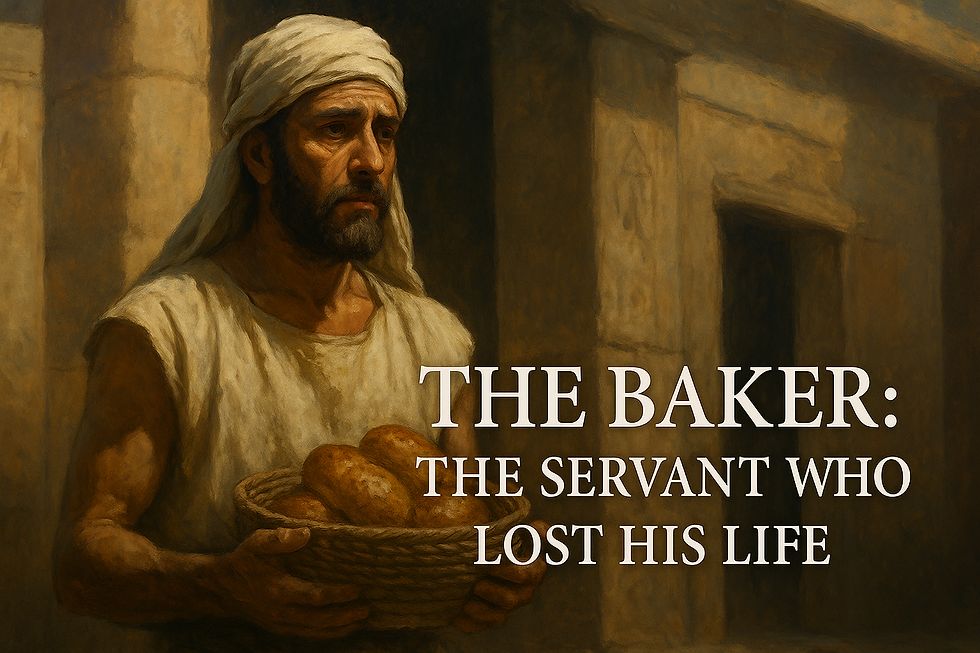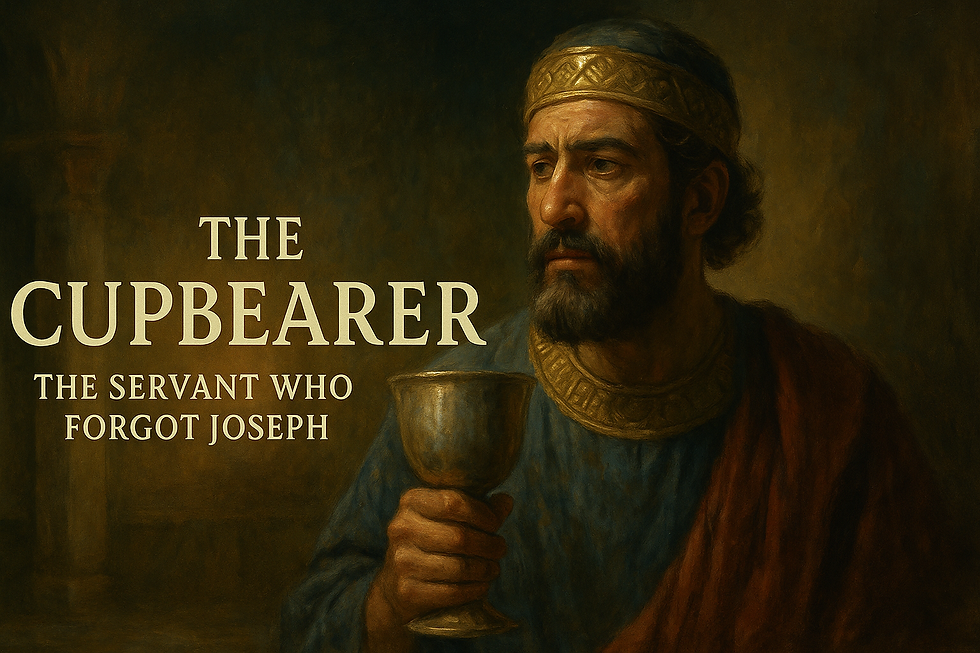The Baker: The Servant Who Lost His Life
- Bible Believing Christian

- Sep 9, 2025
- 3 min read

The Baker: The Servant Who Lost His Life
Pharaoh’s chief baker, alongside the cupbearer, plays a brief but dramatic role in Joseph’s prison years. His dream and its interpretation stand as a sobering contrast between restoration and judgment. The baker reminds us of the seriousness of sin and the certainty of God’s justice.
Name & Etymology
Scripture identifies him simply as the baker (אֹפֶה, ʾōp̄eh, pronounced oh-feh), meaning “one who bakes.” His position as chief baker meant responsibility for Pharaoh’s food preparation and safety, a role of both skill and trust.
In the Septuagint (LXX), he is called ἀρτοποιός (artopoios), literally “bread-maker.” His title reflects a position of importance within Pharaoh’s household.
Biblical Narrative (The Story)
The baker’s story is recorded in Genesis 40.
In Prison with Joseph: Pharaoh became angry with his chief cupbearer and chief baker and imprisoned them with Joseph (Genesis 40:1–3).
The Dream: The baker dreamed of three baskets of bread on his head. Birds came and ate from the baskets.
Joseph’s Interpretation: “This is what the dream means,” Joseph told him. “The three baskets also represent three days. Three days from now Pharaoh will lift you up and impale your body on a pole. Then birds will come and peck away at your flesh” (Genesis 40:18–19, NLT).
The Fulfillment: “Pharaoh’s birthday came three days later, and he prepared a banquet for all his officials and staff. He summoned his chief cup-bearer and chief baker to join the other officials. He then restored the chief cup-bearer to his former position, but he impaled the chief baker, just as Joseph had predicted” (Genesis 40:20–22, NLT).
Historical & Cultural Context
In ancient courts, bakers and cupbearers carried heavy responsibility, as Pharaoh’s life depended on the safety of his food and drink. The baker’s fate underscores the absolute authority of Pharaoh and the precariousness of serving in such proximity to a king.
Execution by impalement was a known form of punishment in the ancient Near East, both humiliating and final. The baker’s death reflects the severity of Pharaoh’s wrath and the certainty of Joseph’s God-given interpretation.
Character & Themes
The baker represents judgment, mortality, and the contrast of destinies. Where the cupbearer’s dream ended in restoration, the baker’s dream ended in death. Together, their stories highlight both the mercy and severity of God.
Connection to Christ
The baker’s execution reminds us of the wages of sin, while the cupbearer’s restoration reminds us of grace. At the cross, Christ bore judgment so that His people could receive mercy. Where the baker’s dream ended in death, Christ’s death opened the way for life.
Theological Significance
The baker’s story emphasizes that God’s Word is certain — both promises of life and warnings of judgment. His fate is not merely tragic but illustrative of the reality that God’s justice cannot be ignored.
Myths & Misconceptions
Myth: The baker’s punishment was random.
Truth: Scripture portrays it as just and divinely revealed, underscoring God’s sovereignty even over Pharaoh’s decisions.
Myth: Joseph was harsh in his interpretation.
Truth: Joseph faithfully relayed God’s message without softening it, showing the importance of speaking truth even when it is hard.
Application
The baker challenges us to take seriously the warnings of God. His story is a reminder that judgment is real and unavoidable apart from God’s mercy. It calls us to embrace the grace of Christ, who bore judgment in our place.
Conclusion
The baker was a servant whose dream revealed his impending death. His story, though brief, underscores the certainty of God’s Word and the seriousness of His justice. Alongside the cupbearer, the baker reminds us that life and death are in God’s hands, and only in Him is true salvation found.


